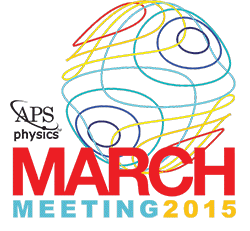By: Catherine Westfall, FHP and Amanda Nelson, Associate Archivist

The APS Forum on the History of Physics (FHP) has arranged four invited sessions for the March 2015 meeting in San Antonio, Texas on March 2-6. Here is some information about the sessions, check your APS March meeting program for dates and times, and they hope to see you there.
Session B19: Inspiration Approaches to Teaching Physics and History of Physics
Various experts in physics and history of physics education will share ideas about how to inspire students to understand more about physics and history of physics.
Brian Schwartz: The Use of Theater and the Performing Arts in Science Education and the Teaching of History
Alberto Martinez: Bruno, Galileo, Einstein: The Value of Myths in Physics
Bob Jacobsen: Teaching Physics to Future Presidents
Leslie Atkins: Composing Science
Louis Bloomfield: How Things Work: Teaching Physics in the Context of Everyday Objects
Session L24: Pais Prize Session: Physics at the Intersection of History, Technology and Society

This session will investigate the relationship physics has maintained with society over the last century and a half, particularly in relation to technological change.
Spencer Weart: Abraham Pais Prize Lecture: Understanding the Impacts of Global Warming: A History
Cyrus Mody: Burnt by the Sun: Jack Kilby and the ‘70s Solar Boom
Aimee Slaughter: Optimistic Dangers: Views of Radium Therapy During the American Radium Craze
Bruce Hunt: To Rule the Waves: Cable Telegraphy and the Making of “Maxwell’s Equations”
Robert Crease: The Social Appropriation of Quantum Language and Imagery
Session R54: Staged Reading of the Play: Background

A Staged Reading of the Play: Background —The play is based on the true story of New York Cosmologist Dr. Ralph Alpher. The play moves backwards, as does the study of the origins of the universe, to trace the path of the forgotten and unaccredited scientist, who before the technology was capable, provided the mathematical proof of the existence of Cosmic Background Radiation. Twenty years later after two other scientists found the actual radiation and received Nobel Prizes for their accidental discovery, Ralph suffers a heart attack due to the stress of being snubbed. It is from this moment he traces backwards through his life and, ultimately, to the beginning of time. The play relies on silence, pace, and metaphor to deliver a striking, sometimes mystical look into the science of behind humans, and the humanity behind a scientist. Join us for a dramatic staged reading of Background, a play by Lauren Gunderson performed by The Overtime Theater of San Antonio. Arranged by special permission of The Gersh Agency. After the performance, the director and actors will be available for a talk-back audience discussion.
This session will explain how peer review developed in scientific publishing, evaluate its value, and consider whether there are alternatives to this method of evaluation.
Daniel Ucko: There is no “I” in referee: Why referees should by anonymous
Samindranath Mitra: Validity, not Dissemination
Timothy Smith: Peer-review: An IOP Publishing Perspective
Andrea Taroni: Inside Nature
